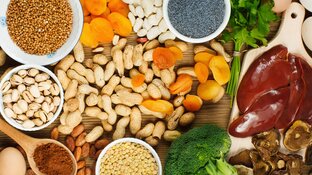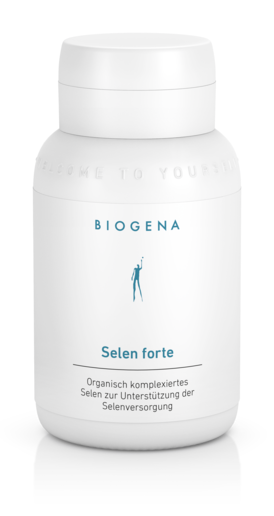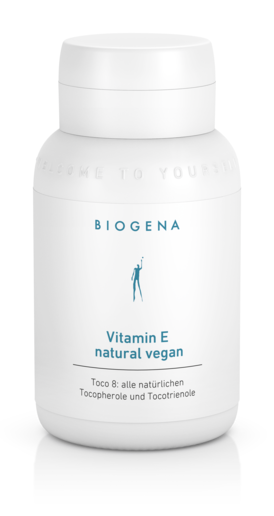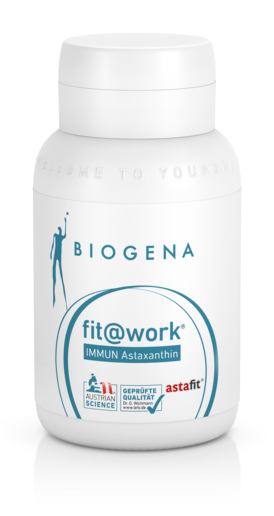Antioxidant supplements
Our cells work hard every day – and antioxidants help protect them. They support your well-being by helping to reduce oxidative stress – especially useful in times of strain, poor nutrition, or simply as part of your daily health routine.


Antioxidants: protectors of our cells against oxidative stress
Antioxidants are molecules that neutralize free radicals in the body and thus prevent cell damage. They protect our body from oxidative stress, which can be caused by various environmental factors, unhealthy nutrition or stress, and contribute to health and cell function.
Take antioxidants as a dietary supplement
Antioxidants as a dietary supplement offer an effective way to support the body in defending itself against oxidative stress. Factors such as environmental pollution, an unbalanced diet or high stress levels can overburden the body's natural antioxidant capacity, which can contribute to cell damage and accelerated aging.
Food supplements containing antioxidants such as vitamin C, vitamin E, selenium or phytochemicals such as polyphenols and carotenoids can help to strengthen the body's defences and promote cell health. These capsules and supplements can be particularly useful during periods of increased stress, in old age or when eating an unbalanced diet. They provide a convenient way to meet your antioxidant needs and thus support your vitality and well-being.
What does the ORAC value indicate for antioxidants?
The ORAC value (Oxygen Radical Absorbance Capacity) measures the antioxidant capacity of a food or substance and indicates how well it can neutralize free radicals. A high ORAC value indicates a strong ability to combat oxidative stress and protect cells from damage.
However, the ORAC value should not be considered a measure of the health effect, since the bioavailability and the combination of antioxidants also play an important role. The determination of the ORAC values is also subject to certain fluctuations, since, for example, the harvest time or processing method have an impact on the antioxidant effect of the measured substance, and they are pure laboratory values whose significance in the human body is limited.
BIOGENA offers highly effective combination products with antioxidant active components that develop a broad spectrum of organ- and tissue-specific activities in the organism.
Where are antioxidants found?
Antioxidants include various substances such as vitamins (e.g. vitamin C, vitamin E, vitamin A and beta-carotene), minerals and trace elements (e.g. selenium, zinc and copper) and secondary plant substances (e.g. polyphenols and carotenoids). These antioxidants are found in various foods such as:
- Fruits: Berries, apples, cherries, oranges, grapes and pomegranates are rich in antioxidants such as vitamin C and polyphenols.
- Vegetables: Green leafy vegetables (e.g. spinach and kale), broccoli, peppers, carrots and tomatoes contain many antioxidants such as beta-carotene, vitamin C and various phytochemicals.
- Nuts and seeds: walnuts, almonds, sunflower seeds and flaxseeds provide vitamin E and other antioxidant compounds.
- Whole grains: oats, quinoa, barley and other whole grains are sources of antioxidants such as selenium.
- Legumes: beans, lentils and chickpeas contain polyphenols, which have an antioxidant effect.
- Spices and herbs: herbs such as oregano and thyme and spices such as turmeric, cinnamon and cloves have a particularly high antioxidant capacity.
- Tea and coffee: green tea, black tea and coffee are rich in polyphenols, which act as antioxidants.
- Dark chocolate: chocolate with a high cocoa content (70% and more) is also a good source of antioxidants such as flavonoids.
Antioxidants as food additives
A number of antioxidants are approved as food additives and have an E number. They can be used to preserve food and ensure its stability. Ultimately, many of the processes by which food spoils are oxidative processes.
When should you take antioxidants?
Antioxidants in the form of food supplements should, as the name suggests, be taken in addition to a balanced diet. The capsules can be particularly useful in times of increased oxidative stress, such as intense physical exertion, high levels of stress, an unbalanced diet or high UV exposure. However, antioxidants are also helpful in old age or with particular health issues to protect cells in the long term, slow down aging processes and support the immune system.
The time of intake can vary: water-soluble antioxidants such as vitamin C can be taken in the morning or with meals, while fat-soluble antioxidants such as vitamin E are best taken with a meal that contains some fat to improve absorption.










